The 6th edition of the Brazil x Norway Seminar was successfully held, reaffirming the strong and strategic collaboration between Brazil and Norway in the maritime and offshore sectors. The event, which took place at FGV Law School Rio, on the 24th September, brought together key industry leaders and policymakers from both countries to discuss the critical role of cooperation in scaling up the green shift in the maritime industry.

This year’s seminar focused on the urgent need for sustainable solutions, with a special emphasis on decarbonization and the challenges posed by competition for carbon-neutral fuels across different sectors. Distinguished speakers from Brazil and Norway shared insights on policies, innovations, and regulations aimed at driving the green transformation in shipping and offshore operations.
Among the notable speakers were Patrícia Feitosa Bonfim Stelling, Technical Consultant of EPE; Ada Jakobsen, CEO of Maritime Clean Tech Cluster in Norway; Vice Admiral Carlos André Coronha Macedo, Director of Ports and Coasts; Vice Admiral (Ret.) Wilson Pereira de Lima Filho, Director of ANTAQ; and Josiane Schimidt Kurzlop Gonçalves, General Manager at Petrobras. Their presentations highlighted the commitment of both nations to sustainable maritime practices and the importance of international cooperation in achieving the IMO’s environmental targets.

Felipe Meira, President of ABRAN, opened the seminar with remarks on the longstanding partnership between Brazil and Norway, emphasizing the significance of Norwegian shipowners in Brazil and their leadership in decarbonization efforts. He also acknowledged the support of FGV Law School Rio and the Consulate General of Norway in making the event a success.

The seminar not only provided a platform for exchanging best practices but also reinforced the critical role that Norway and Brazil play in shaping a sustainable future for the global maritime industry. The discussions underscored the need for collaborative approaches to overcome the challenges ahead and leverage the opportunities that the green transition presents.
We thank all participants, partners, and supporters for making the 6th edition of the Brazil x Norway Seminar a great success. Together, we continue to pave the way towards a greener and more sustainable maritime future.










